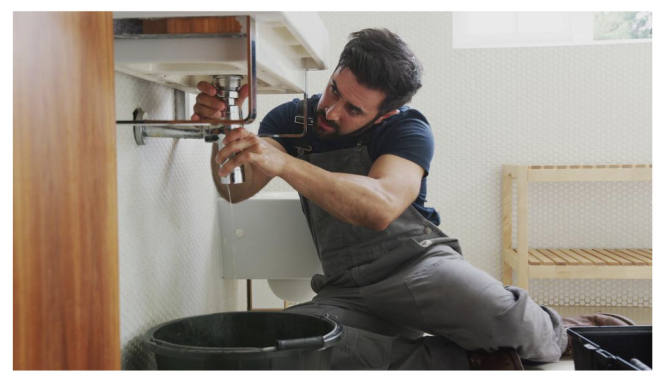- Change theme
Why Plumbing Matters: Hidden Leaks, High Costs, and Water Use in American Homes

Plumbing issues in American homes often go unnoticed until they manifest as serious problems.
00:52 08 June 2025
The Hidden Menace: Plumbing Leaks in American Homes
Plumbing issues in American homes often go unnoticed until they manifest as serious problems. These hidden leaks not only waste an immense amount of water but also lead to substantial damage if not addressed promptly. According to Gitnux, a startling 15% of households across the United States experience some form of water leak. This statistic highlights a prevalent issue that homeowners often overlook. Unaware, families continue with their daily routines, unknowingly increasing water waste and, consequently, their utility bills.
The significance of addressing leaks cannot be overstated, as the implications extend beyond financial strain. Water seepage can weaken structures, leading to long-term damage that often requires costly repairs. This silent destruction underscores the critical need for routine plumbing maintenance. By identifying and fixing leaks early, homeowners can not only save money but also prevent potential catastrophes. Maintaining plumbing systems in tip-top shape ensures the integrity of a home for years to come.
Homeowners should remain vigilant, employing proactive measures to detect leaks before they worsen. Regular inspections by a qualified plumber can uncover these issues at an early stage. With the right interventions, families can mitigate the risks associated with hidden leaks. Proactive management of plumbing systems can significantly reduce water waste in homes across the nation. Ultimately, informed homeowners can safeguard their properties and contribute to broader water conservation efforts.
Staggering Costs: The Financial Burden of Emergency Plumbing
Emergency plumbing services can impose a heavy financial burden on American households. These unforeseen situations often arise from unresolved plumbing issues that evolve into urgent crises. According to Forbes, emergency plumbing repairs can cost two to three times more than typical plumbing work. This markup is due to the immediate nature and often complex requirements of urgent repairs. Homeowners can avoid substantial expenses by addressing minor issues before they escalate.
Effective home management involves regular plumbing inspections, which can identify potential problems. By investing in routine maintenance, families can prevent small leaks from turning into emergencies. This proactive approach results in substantial savings over time, as emergency calls are minimized. Efficient plumbing is not only cost-effective but also contributes to the overall health and safety of the household. The peace of mind that comes with a well-maintained home system is invaluable.
It's crucial for homeowners to understand the economics of plumbing care and recognize potential signs of trouble early. These can include unexpected spikes in water bills or visible water stains on ceilings and walls. By responding promptly to such indicators, families can keep repair costs manageable. The emphasis should always be on sustainability, ensuring both economic and environmental benefits. Homeowners should aim for a home where plumbing issues are anticipated and effectively managed.
Water Use in American Homes: A Case for Conservation
Water consumption within American homes is another critical aspect of the plumbing equation. On average, a family of four uses approximately 400 gallons of water every day. This significant usage underscores the importance of sustainable practices within the household. Simple changes in daily routines can contribute to substantial water savings, benefiting both the environment and family finances. Conscious water use is a fundamental aspect of responsible homeownership.
In many homes, inefficient plumbing fixtures can contribute to excessive water usage. Upgrading to water-saving appliances and regularly checking for leaks can lead to considerable reductions in water use. Homeowners can implement measures such as low-flow toilets, efficient showerheads, and faucet aerators, which notably reduce water consumption. These changes offer long-term benefits, lowering utility bills and preserving water reserves. The collective impact of individual actions can make a significant difference.
Education plays a vital role in promoting sustainable water use practices. Homeowners should be encouraged to understand their daily water consumption and identify ways to lower it. Greater awareness can lead to a more substantial commitment to conserving water resources. By cultivating a culture that values conservation, families contribute to preserving precious resources for future generations. Responsible water management in homes is not only advantageous for individuals but is vital for broader environmental sustainability.
